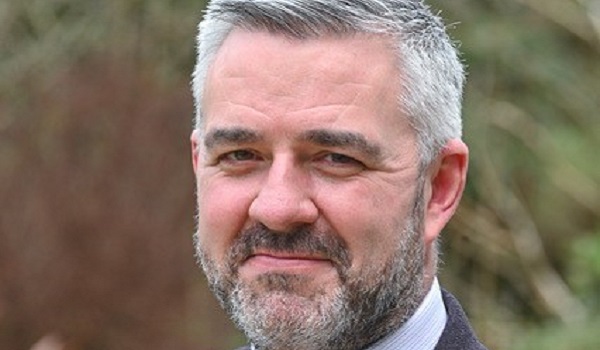Federation tells ministers to give priority to policing in draft programme
The Police Federation for Northern Ireland (PFNI) has told Executive ministers they should re-write the proposed draft Programme for Government (PfG) to give priority to policing.
In a formal submission, the Federation, which represents 99 per cent of Police Service of Northern Ireland (PSNI) officers, offered straight-forward advise to ministers.
The submission read: “‘Pipe dream’ politics must end, replaced by a new and long overdue sense of reality.
“From a policing perspective, this draft PfG is a disappointment of monumental proportions. It lacks depth and clarity. It lacks any understanding of what officers do on behalf of this entire community. It regrettably also lacks any ambition from a policing perspective.
“Instead, the document adopts a delusional and myopic approach that does an enormous disservice to the men and women this Federation is proud to represent and who never question the need to step up to the plate on behalf of the public they serve. They [officers] now reasonably expect the political leaders who represent them to do the same.”
The PFNI criticises ministers for devoting a “paltry 17 words” on policing in a document of more than 13,500 words. They also failed to make policing one of the Executive’s key priorities.
PFNI chair Liam Kelly said: “The document refers to ‘actively seeking to achieve a sufficient number of police officers in line with NDNA commitments…’
“It offers 17 words to cover an essential service that is spiralling into a deepening crisis. It’s akin to a disrespectful throwaway line that exposes ministerial words as mere guff and bluster.
“It totally betrays police officers in a deplorable manner and clearly shows how our ministers are tone deaf to the pleadings and rational arguments of the leadership of the PSNI.”
Mr Kelly urged the Executive to apply the brake to the decline in PSNI resources and the intolerable pressures this is placing on officers.
The PFNI wants the draft PfG re-written “to make policing front and centre” for the remainder of the Executive mandate. It wants ministers to commit to an increase in officer numbers to at least 7,000 over the next three years and then sign up to an expansion to at least 8,000 by 2030.
The PSNI currently has around 6,300 and is losing up to 40 officers per month.
Even with the ongoing small recruitment drive, the size of the PSNI could slip to below 6,200 by the end of this financial year – close to 1,300 below what was envisaged for a peacetime situation and up to 2,300 short of what is needed to police a population of over 1.9 million people, said the PFNI.
The PFNI is also asking for ring-fenced funding to properly resource the PSNI’s Occupational Health Unit to treat officers presenting with a range of psychological and physiological conditions and who are currently waiting inordinate lengths of time for proper support and ongoing effective treatment.
It is arguing for a more streamlined approach to annual pay awards and tougher sentences in the courts for assaults on officers.
The Federatio also painted a “grim picture” of the operational ability of the PSNI in the face of continuing decline.
The submission stated: “There has to be a step-change in attitude by the Executive. It can no longer bury its head in the sand and ignore the full extent of what must be tackled.”


